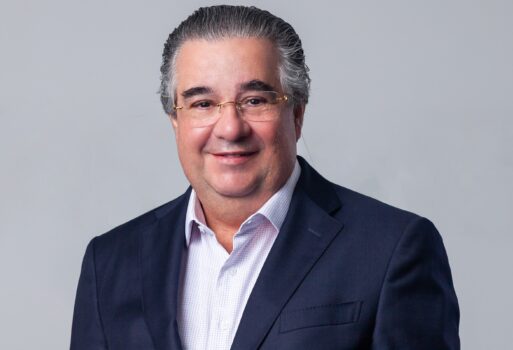
João Sampaio, Director of Institutional Relations at Minerva Foods. (Photo: Disclosure)
In all Gulf countries, especially Saudi Arabia and the United Arab Emirates, there are governmental projects aimed at reducing dependence on imported food. All these plans were accelerated during the Covid-19 pandemic and are demanding technologies to enable the cultivation of food and the raising of animals in the desert climate. There is a great opportunity for the solutions that already exist in the Brazilian agribusiness, provided by institutions such as Embrapa, which can establish cooperation projects with Arab institutions.
A good example of this was evidenced during the Mission of the Ministry of Agriculture and Livestock (Mapa) in Saudi Arabia, held in 2023, when Minister Carlos Fávaro announced the formation of a working group for the structuring of the partnership between the countries in the largest sustainable food production program in the world, developed by Mapa. The initiative aims at the conversion of low productivity pastures into arable areas. At the time
According to data compiled by the Market Intelligence department of the Arab Brazilian Chamber of Commerce, Brazil’s exports to the block of 22 Arab countries in the Middle East and North Africa had a high prevalence of agribusiness products. Sugar, chicken meat, corn, soy and its derivatives, beef, and coffee are some of the highlights in this product basket. The main destinations were the United Arab Emirates, which imported the equivalent of US$ 3.26 billion from Brazil in 2022, an increase of 40.09% over 2021. In second place comes Saudi Arabia, with a total of US$ 2.92 billion, an increase of 41.26% in the same comparison.
Trend
In this context, the Halal market – products made according to Islamic laws – has 1.9 billion consumers worldwide. In the coming years, the Islamic population will represent 25% of the global population, promoting a significant increase in consumption. It is predicted that the international Halal food market will expand at an annual growth rate of 4.52%, according to a new forecast by the consulting firm Technavio, which added that this sector is expected to bill US$ 427.68 million by 2027.
Murilo Corral dos Santos, export director of Minerva Foods, says that the company’s commercial strategy is very much linked to the region. “We have a responsibility as a company to not only serve the Middle Eastern and North African markets but also all Halal markets around the world,” he states.
The company considers geographical diversification an extremely relevant item in its business strategy, as it allows for risk mitigation by not depending on a single market. “We have a business platform established in six markets that allows us to reach customers around the world in a much less risky manner,” Santos analyzes.
Potential
The executive explains that Minerva’s strategy is to be close to the customer and have people who understand the local culture. According to Santos, this is very important to understand how to offer solutions to that customer in a more sustainable way. The company’s CCO is based in Dubai, United Arab Emirates, “a flight away” from any country and between Asia and Latin America, allowing for full coverage of time zones, speeding up communication and facilitating the transmission of information between the offices and the countries where the company operates. In the Middle East, the company has offices in Algeria, Egypt, Lebanon, Saudi Arabia, and Dubai.
[…]
Translated from: LIDE Magazine.
